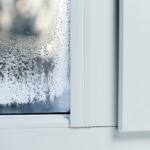It’s tax season once again, and along with it, the annual stress and confusion about new rules and how to get the biggest tax refund. For those of you who spent a good portion of 2021 inside your homes, making improvements or taking on new projects, you might be eligible for some additional tax breaks this year.
Of course, not all home improvements are tax-deductible. The IRS has specific guidelines for what type of home improvement or upgrade qualifies for a tax credit. As you prepare the necessary documents for filing your taxes, be sure not to overlook any potential money-saving deductions or write-offs from upgrades made to your home.
- Working from home
- Energy-efficient home upgrades
- Modifications to your home office
Working from home
If you are self-employed and work from home, you may be able to deduct some home-related expenses like mortgage interest, property taxes, homeowners insurance, and utilities. According to the IRS, this space must be used regularly and exclusively as your primary place of business or work to qualify. Additionally, if you use part of your home or property for inventory storage, rental use, or as a daycare facility, you may be able to apply for this deduction. With an increased number of people working from home, the rules for what qualifies as a tax deduction are changing. It’s important to stay aware of the most current tax policies here.
Energy-efficient home upgrades
If you were productive during the pandemic and used the lockdowns to remodel or make energy-efficient upgrades to your home, you could receive a tax credit. There are two types of upgrades that meet requirements: qualified energy efficiency improvements and residential energy property expenditures.
Qualified energy efficiency improvements include:
- Energy-efficient windows
- Exterior doors
- Skylights
- Certain roofing materials (metal and asphalt)
- Insulation.
Residential energy property expenditures include the following qualifying products:
- Energy-efficient heating and air conditioning systems
- Water heaters (natural gas, propane, or oil)
- Biomass stoves
- Solar electric and water heating
Qualifying equipment and materials must meet the standards set by the Department of Energy to determine if they will impact your taxes. The manufacturer can tell you whether a particular item meets those standards. Keep all product documents, receipts, installation dates, and other information for your tax records.
Improvements to your home office
If you are self-employed or an independent contractor
If you run a home business, in addition to writing off typical office-related expenses, you may be able to deduct improvements to your home office space. It could be something as simple as installing a bookcase or buying an office chair to building or expanding a new dedicated workspace – at least some of these expenses may be deductible. Check with your tax preparer or consult the IRS website for full details.
It’s important to note that this deduction only applies to a home office that is your primary place of work. W-2 employees working remotely from home are not eligible for tax deductions on improvements to a home office space.
As the tax deadline approaches and official documents start to stack up, you won’t want to miss out on some of these overlooked but valuable tax credits and deductions. You can also start planning ahead for next tax season, call the friendly pros at LEI Home Enhancements about upgrading to energy-efficient windows and doors that may help reduce your tax burden. Consultations are free and available in-person or virtually.







